News
Ukraine and japan discussed further cooperation in the field of destruction waste management
Meeting with three ministries (the ministry for communities and territories development of ukraine, minister of health of ukraine, ministry of environmental protection and natural resources)
Japan has donated about 30 pieces of special equipment to Ukraine to manage the waste of destruction as part of the Emergency Recovery and Reconstruction Project for Ukraine. Pilot projects are being implemented in Kyiv region.
Currently, Japanese colleagues, with the support of the Waste RecyclingAssociation of Ukraine, have conducted a study of temporary storage sites for demolition waste in Kyiv Oblast. A visual inspection was carried out and waste samples were taken and sent to laboratories in Poland. As a result, waste containing asbestos was found at some sites.
Based on the study, the Japanese side is preparing recommendations that will help to identify asbestos-containing waste in time during its acceptance and sorting, as well as to take appropriate safety measures.
Japanese colleagues also plan to conduct a study of background levels of asbestos concentration in the air at temporary waste storage sites. The results will help analyse how the processes of crushing and processing demolition waste can affect the environment. Based on this, appropriate recommendations will be developed.
Japan's expert assistance is also important for Ukraine in determining the locations for the disposal of asbestos-containing waste.
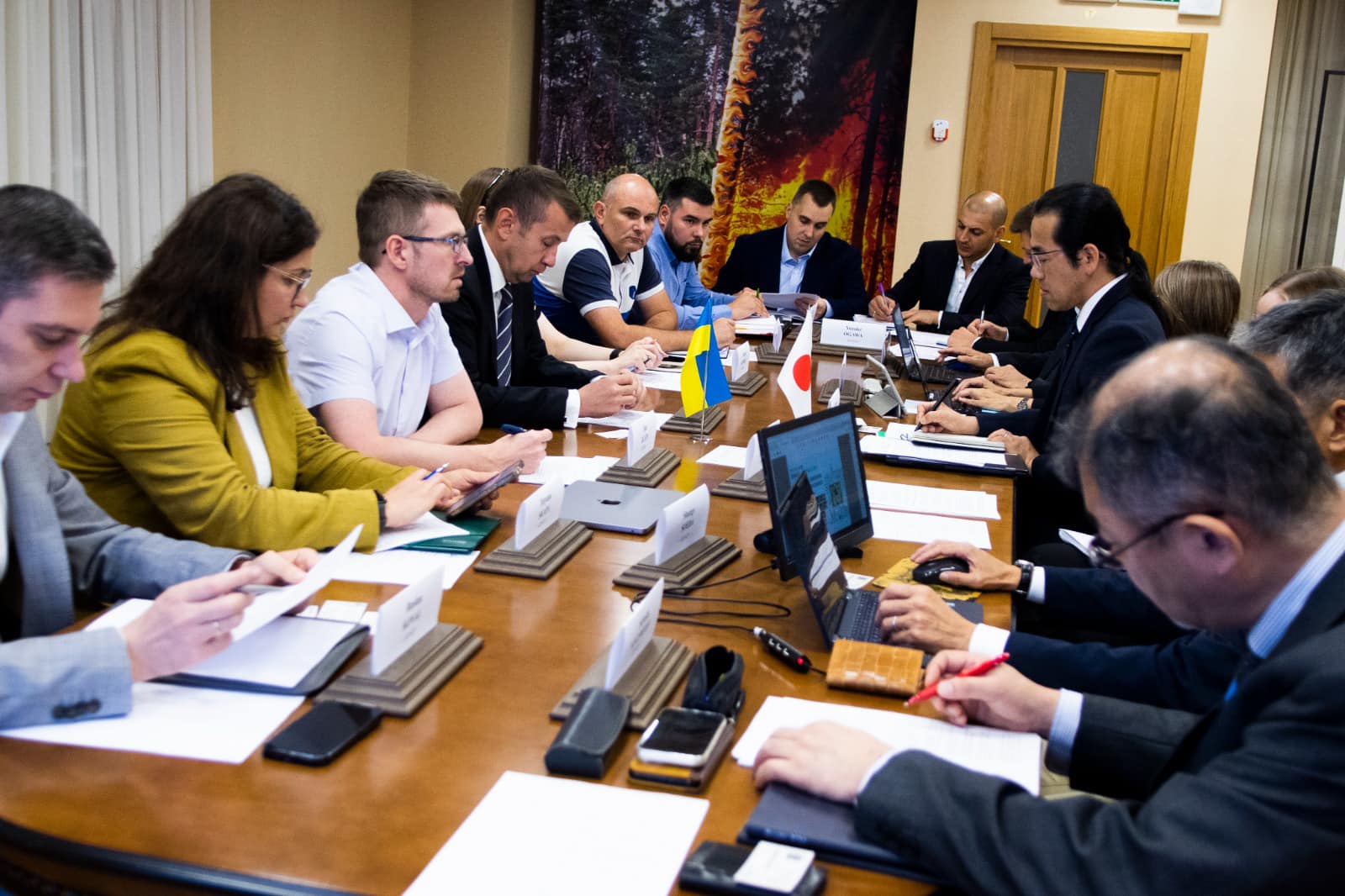
Japanese delegation visits innovative waste recycling centre in bucha
In Bucha (Kyiv region), representatives of the Japanese International Cooperation Agency (JICA) visited a modern center for the recycling of construction debris. This site specialises in recycling waste left over from the destruction caused during the war.
To date, more than half of the construction waste has been recycled, and the materials obtained are actively used to restore road infrastructure. Thanks to the support of UNDP Ukraine, the centre is equipped with advanced sorting and recycling equipment, which increases its efficiency.
The Waste Recycling Association of Ukraine accompanied the JICA delegation during the visit, facilitating the discussion of best practices in waste management. Representatives of the Association stressed that cooperation with international organisations such as JICA and UNDP is an important step in introducing advanced technologies in Ukraine.
During the visit, the Japanese delegates got acquainted with all stages of the facility's operation, inspected the equipment and discussed the technological aspects used in the processing process. They also emphasised the importance of this site for the environmental restoration of the community.
It is worth noting that JICA has previously donated three powerful diesel generators to Bucha to provide critical facilities with electricity in the event of possible power outages.
This meeting was another proof of successful international cooperation aimed at supporting Ukrainian cities affected by the war and finding innovative solutions in the field of ecology.


Project for emergency recovery and reconstruction JICA – kosa meeting september 2024
The delegation of the Japan International Cooperation Agency (JICA) got acquainted with the progress of the programme of demolition waste management in Kyiv Oblast.
🇺🇦 The foreign partners were met by Mykola Boyko, First Deputy Head of the Kyiv City State Administration, Lesia Karnaukh and Andrii Bratus, Deputy Heads of the Kyiv City State Administration.
🇯🇵 The Japanese delegation included Kazunao Shibata, Deputy Director General of the JICA Global Environment Department, Masako Ogawa, Deputy Director General of the Global Environment Bureau, Ministry of the Environment of Japan, Dr Mitsuo Yoshida, Senior Advisor to JICA, and Shungo Soeda, Consultant of Nippon Koei Co.
The foreign delegation visited the sites for temporary storage of construction waste in Buzova and Borodyanka. They visited the location where the equipment provided by the Japanese side is stored.
The Waste Recycling Association of Ukraine is supporting and futherance to implement the pilot project.
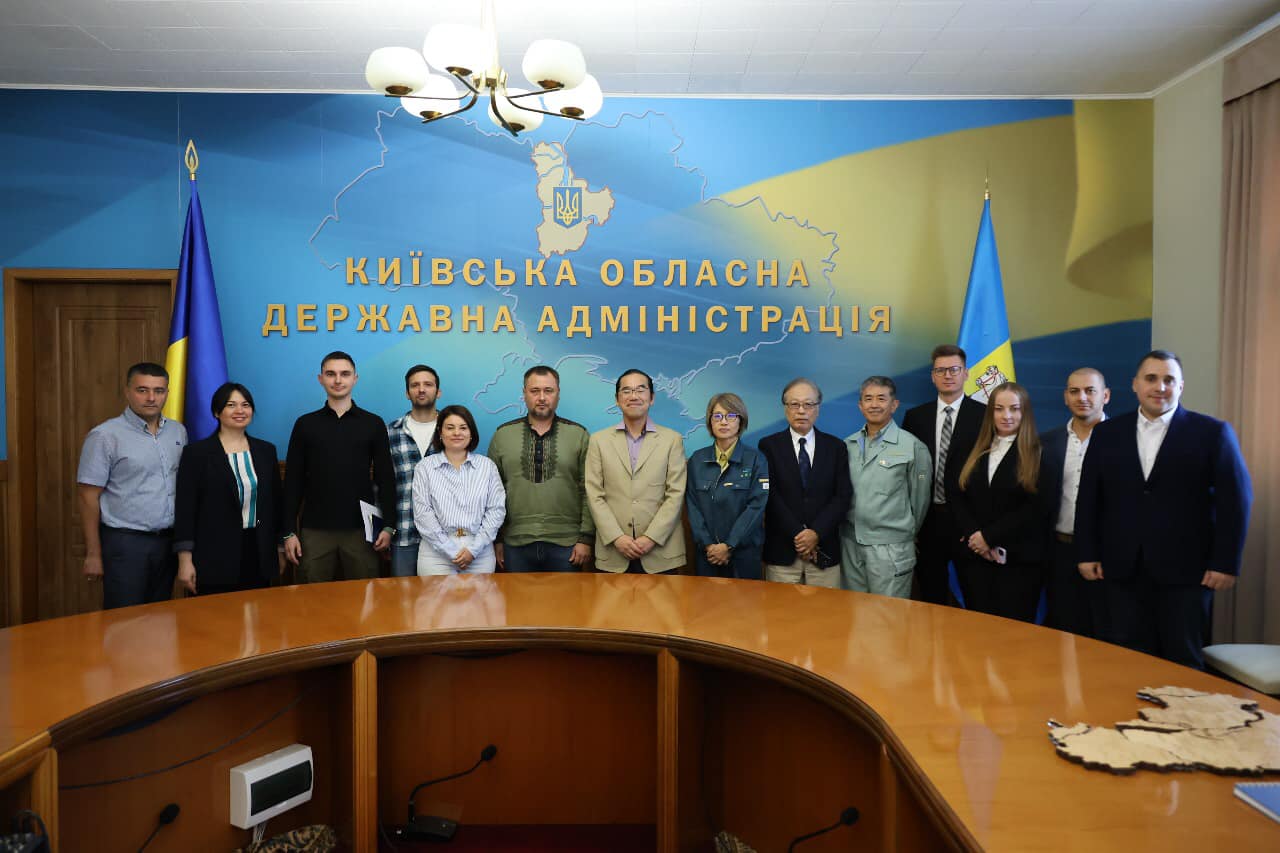

New rules for licensing hazardous waste management activities
The European Integration Law "On Waste Management" defined a new type of licensing - hazardous waste management.
This means that the document establishes:
- procedure for obtaining a license by enterprises that intend to work with hazardous waste - to collect, store, treat and dispose of it;
- organizational, personnel and technological requirements for such enterprises and their equipment.
Therefore, from now on, in order to be eligible to carry out hazardous waste operations, companies need to take two steps:
- Pass a pre-licensing inspection. Such inspections will be carried out at the request of business entities by employees of the Ministry of Environment. In particular, they will establish on-site the availability and compliance of the company's material and technical base with technological requirements, rules for the technical operation of facilities and technical regulations. The Ministry has already approved the Procedure for conducting relevant inspections. The document was registered with the Ministry of Justice on December 4, 2023 under No. 2099/41155. Therefore, business entities can log in to the Waste Management Information System on the EcoSystem and submit applications for inspection.
- Submit documents for obtaining a license in accordance with the approved License Terms. This approach will allow Ukraine to solve the accumulated problems with hazardous waste, ensure an adequate level of environmental safety in the country and continue to move forward with the roadmap for reform and accession to the EU.
Due to the comments of some business entities, such a relicensing process can take some additional 3-6 months for approval to become eligible to conduct activities with hazardous waste management in Ukraine. In this regard the list of entities can be shortened more than twice as far as most of the entities would not comply with the new regulatory requirements.


Asbestos is banned!
Over the past few years, significant changes have taken place in Ukraine's legislation regarding asbestos processing, aimed at aligning it with European Union standards. This has largely been made possible due to the rapid harmonization of Ukrainian legislation with that of the EU as a whole.
One of the key measures taken by the Ukrainian government is the complete ban on the use of asbestos starting from October 2023. The law "On the Public Health System" clearly specifies that the production and use of asbestos in any technological processes and construction works are prohibited. Safety measures are determined by state sanitary regulations.
Order No. 1013 of the Ministry of Health of Ukraine, "On Approval of State Sanitary Norms and Rules on Safety and Protection of Workers from the Harmful Effects of Asbestos and Materials Containing Asbestos," supplements the ban on asbestos use and establishes recommendations to reduce health risks for workers.
In the asbestos processing field, rules are also defined according to Order No. 1073, which regulates the handling of waste resulting from the damage of buildings and structures. Asbestos-contaminated construction waste is not subject to recycling or reuse and must be disposed of.
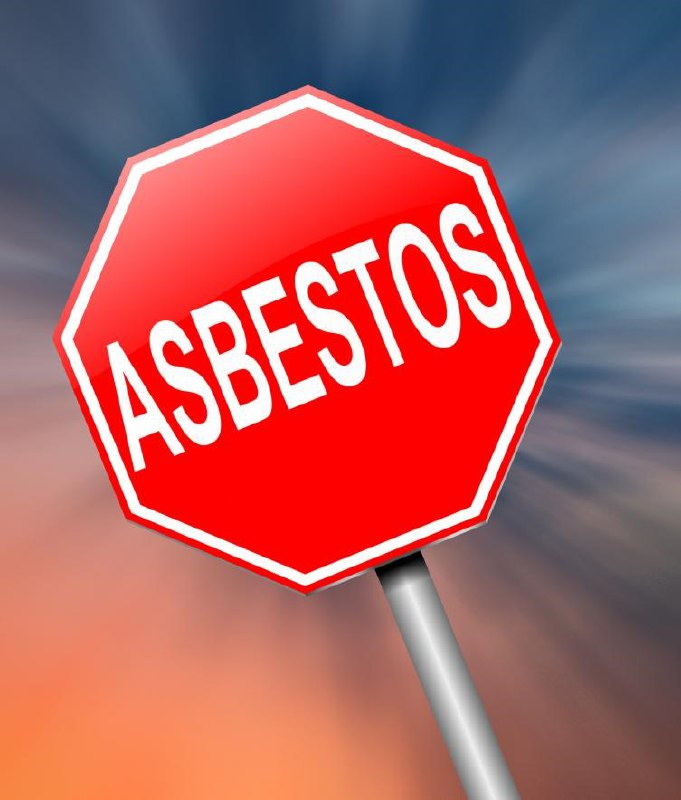
Waste recycling association of ukraine, lithuanian demolition association signed a memorandum with the city of irpin (kyiv region).
A memorandum of cooperation was signed with Rokas Urbonas, chairman of the Lithuanian Demolition Association, Irpin Mayor Oleksandr Markushyn and Eduard Avetian, chairman of the Ukrainian Waste Recycling Association.
Taking into account the urgent need of the Irpin City Territorial Community to dismantle, remove, recycle and dispose of a large amount of construction waste generated in the community as a result of Russia's armed aggression against Ukraine, as well as the interest in maintaining environmental balance and safety in the territory of the Irpin community.
Using Lithuania's experience in recycling and sorting construction waste, we will be able to use construction waste in an ergonomic and environmentally friendly manner with the possibility of its separate use in new construction.
The Waste Recycling Association of Ukraine facilitates this project by providing legal, expert and advisory support at all stages of its implementation.
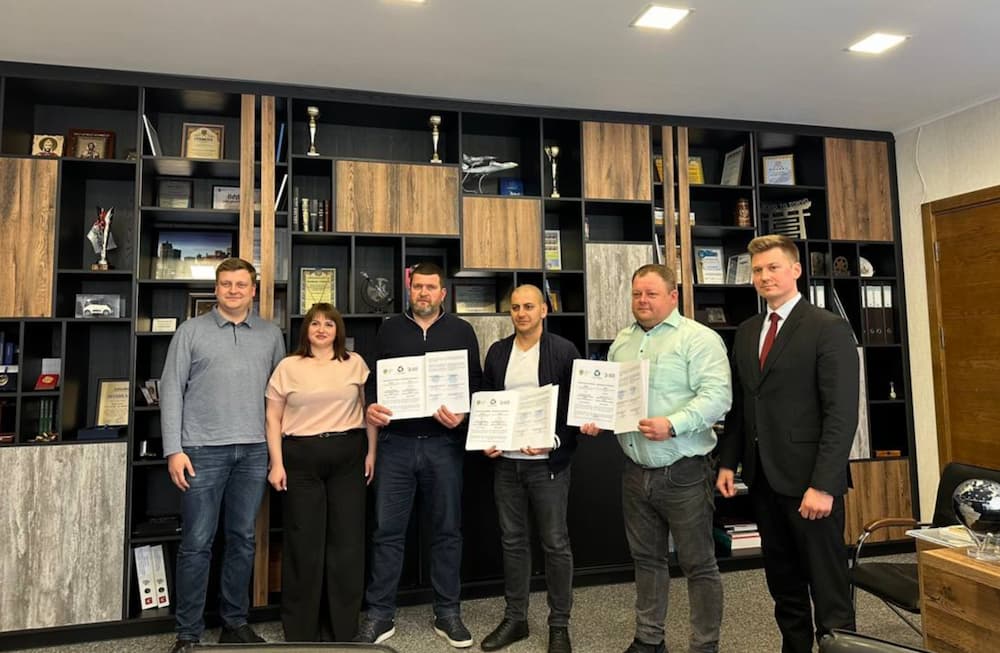

Meeting of the Lithuanian Demolition Association and the Waste Recycling Association of Ukraine with Ukraine Invest.
The Chairman of the Lithuanian Demolition Association Rokas Urbonas visited Ukraine to meet with Sergiy Tsivkach, Executive Director of the Ukrainian Investment Agency, Eduard Avetian, Chairman of Waste Recycling Association of Ukraine (UAWRA) and Valeriy Kotsyuba, Coordinator of the Private Financial Advisory Network (PFAN) in the Eastern Hemisphere (Europe, Asia, Australia). The purpose of the visit was to discuss the possibilities of establishing mobile construction and demolition waste recycling centers, which would be beneficial for local communities in Ukraine and would help maintain environmental balance and safety in Ukraine.
The visit followed Ukrainian press reports that emphasized the initiative of Rokas Urbonas and the Lithuanian Demolition Association and their efforts to help Ukraine solve the problem of increasing construction waste. These problems have arisen due to the illegal military aggression of the Russian Federation against Ukraine, the consequences of which are felt throughout the country.
Rokas Urbonas is the chairman of the Lithuanian Demolition Association and represents companies operating in the field of demolition, recycling, utilization and reuse. He and his colleagues from the Lithuanian Demolition Association are ready to mobilize efforts and help local communities in Ukraine solve this problem.
Sergiy Tsivkach, Executive Director of the Ukrainian Investment Agency, emphasized that green investments and decarbonization are among the priority areas of investment in Ukraine. He also emphasized that the Waste Recycling Association of Ukraine is an important partner and cooperation with the Lithuanian Demolition Association should help Ukraine realize these goals.
The visit also marked the beginning of cooperation between private investors and the public sector in Ukraine. The members of both the Lithuanian and Ukrainian associations have extensive experience and knowledge in the field of demolition and recycling of construction waste, so their cooperation should help create solutions that will be beneficial to both countries.
This visit can be considered an important step towards a sustainable economy and sustainable development of Ukraine. It shows that the private and public sectors can work together to achieve common goals and solve important problems. It can also encourage other investors and associations to participate in this project and support environmental balance and security in Ukraine.
At the same time, Rokas Urbonas expressed his satisfaction with this visit and was pleased that Lithuanian and Ukrainian associations could share their experience and knowledge in the field of demolition and recycling of construction waste. He also emphasized that the creation of such mobile sites for recycling construction waste is important not only for Ukraine, but also for the entire region.
The Waste Recycling Association of Ukraine accompanies Lithuanian partners at all stages of the project.
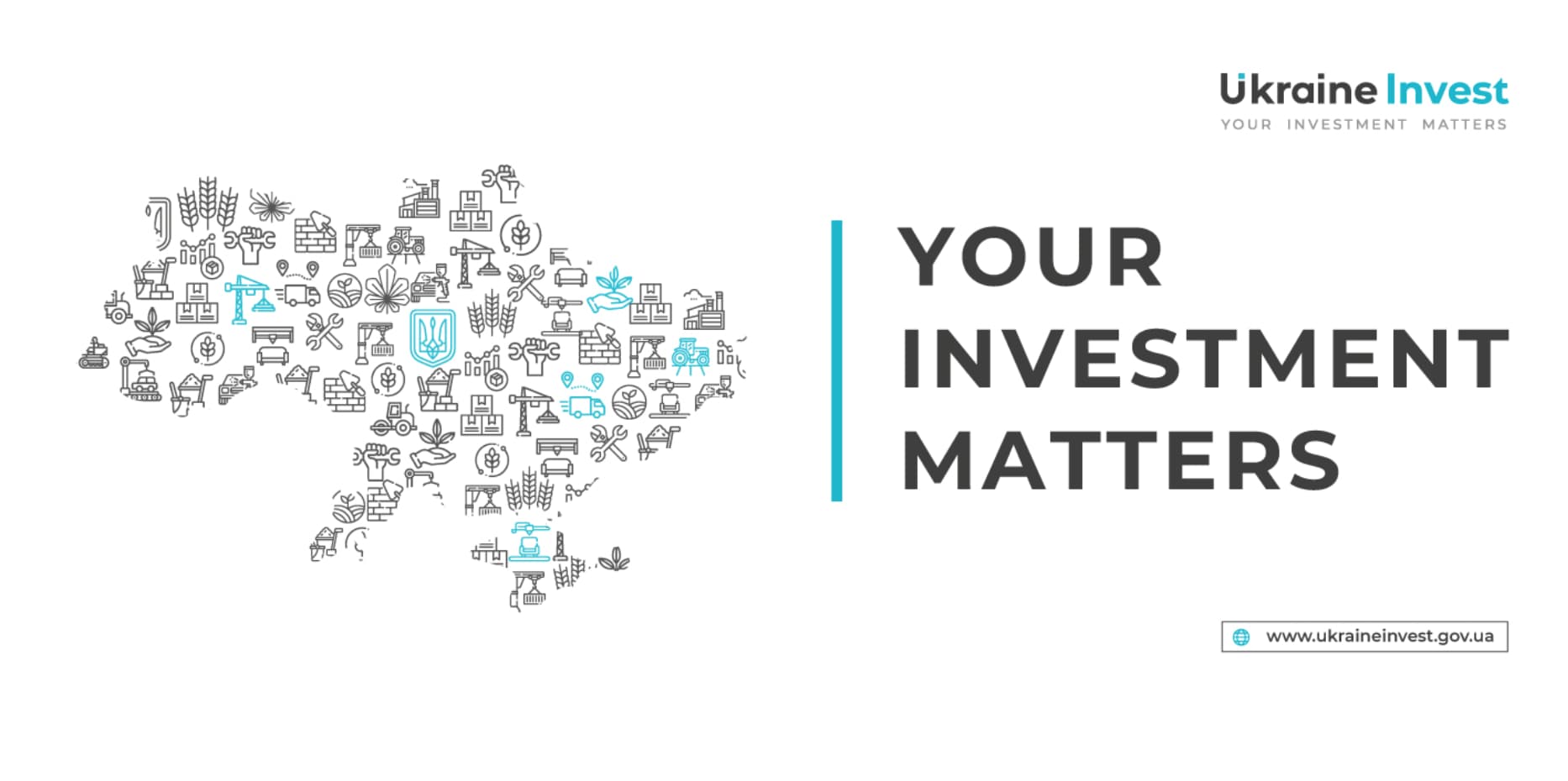
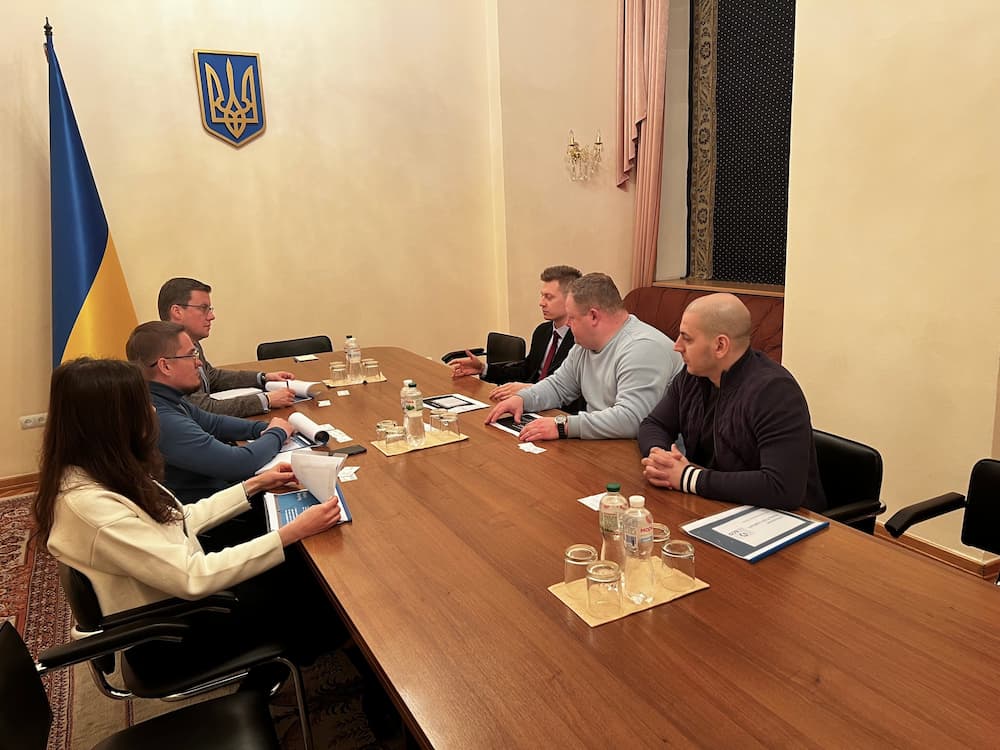
Waste Recycling Association of Ukraine, Lithuanian Demolition Association signed a memorandum with the city of Bucha (Kyiv region).
This agreement promises to be the first step in solving the problem of recycling construction and demolition (C&D) waste that arose after the city was occupied by russian troops in 2022.
The memorandum was signed during the International Summit of Cities and Regions held under the auspices of the President of Ukraine in Kyiv on April 20, 2023. The summit brought together leaders of European municipalities who are ready to support Ukraine's reconstruction.
The city of Bucha has become one of the heroic symbols of the war due to the prolonged occupation by russian troops and the destruction caused. A total of 2,514 buildings were affected, 185 were destroyed, with an estimated total loss of UAH 5.2 billion ($191.3 million) and more than 100,000 tons of C&D waste appeared.
The Waste Recycling Association of Ukraine and the Lithuanian Demolition Association bring together companies with over 30 years of experience in the processing, recycling and sorting of construction waste. The involvement of the necessary equipment and international experts will help the city of Bucha to find solutions for efficient C&D waste processing in Ukraine.
The Waste Recycling Association of Ukraine facilitates this project by providing legal, expert and advisory support at all stages of its implementation.
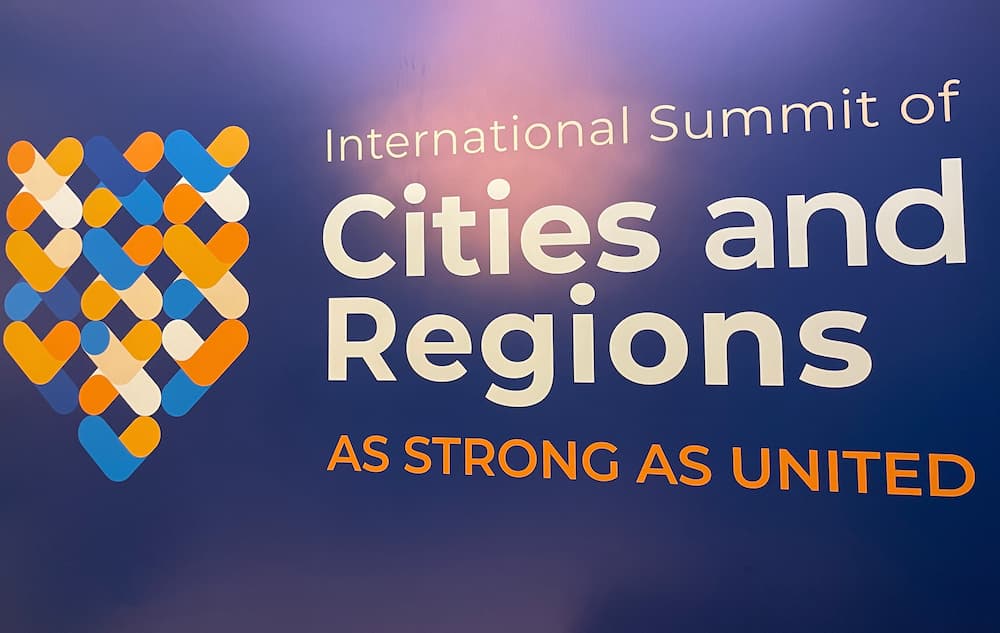
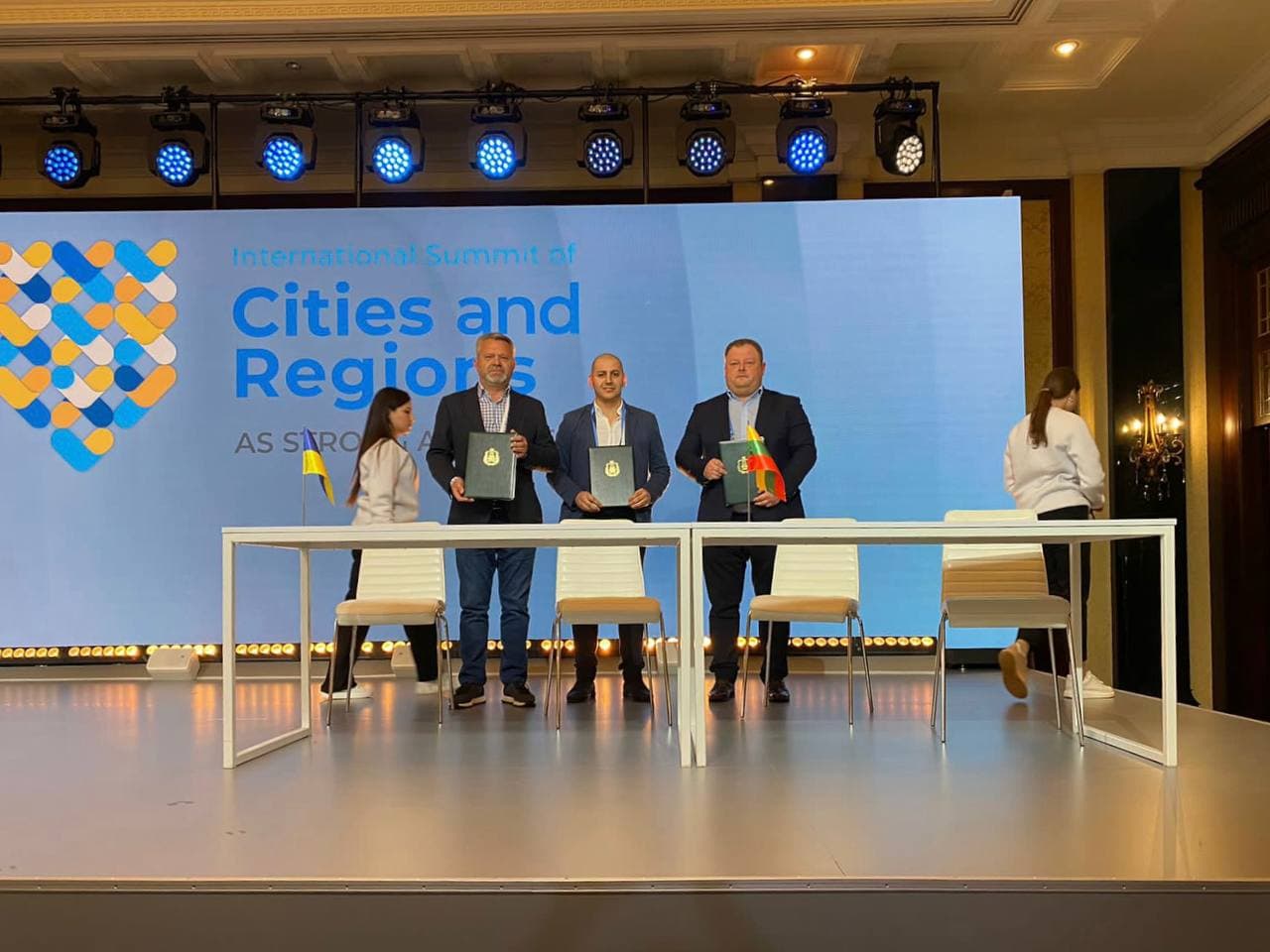
On the organization of waste management resulting from the war
The article analyzes the current problems of waste generation from military operations in the context of Russian armed aggression against Ukraine and identifies priority measures for organizing further management of such waste.
Waste classification should be carried out in accordance with the National Waste List and the Waste Classification Procedure, taking into account the List of Properties that Make Waste Hazardous.
Approval of the Waste Classification Procedure and the National Waste List will ensure the application of a unified approach to determining the waste code, similar to that used in the European Union for waste classification for management purposes.
The Cabinet of Ministers of Ukraine is recommended to:
- to approve the Waste Classification Procedure and the National Waste List with the inclusion of waste generated due to the Russian military aggression in connection with the damage and destruction of buildings and structures;
- to take measures to expand the practice of reusing the main components of demolition waste after their treatment or processing during the implementation of construction projects and conduct relevant research;
- promote the development of projects with the participation of international UN and EU programs to clean up the territories from the destruction waste caused by military operations, as well as to restore critical infrastructure.
The longer such waste stays on the territory of Ukraine, the more damage it will cause to the environment, polluting soil, water, and air, as well as causing additional greenhouse gas emissions, which will negatively affect global climate processes.
In the short term, to effectively manage war waste, Ukraine should focus on eliminating and reducing immediate risks to human health and the environment. Preparing and implementing comprehensive environmental cleanup measures, especially those related to the collection, safe disposal, and management of the huge amount of military and other waste, will help reduce immediate risks to public health.
In the long term, the management of war waste should be subordinated to the task of developing an environmentally friendly, green economy in Ukraine.
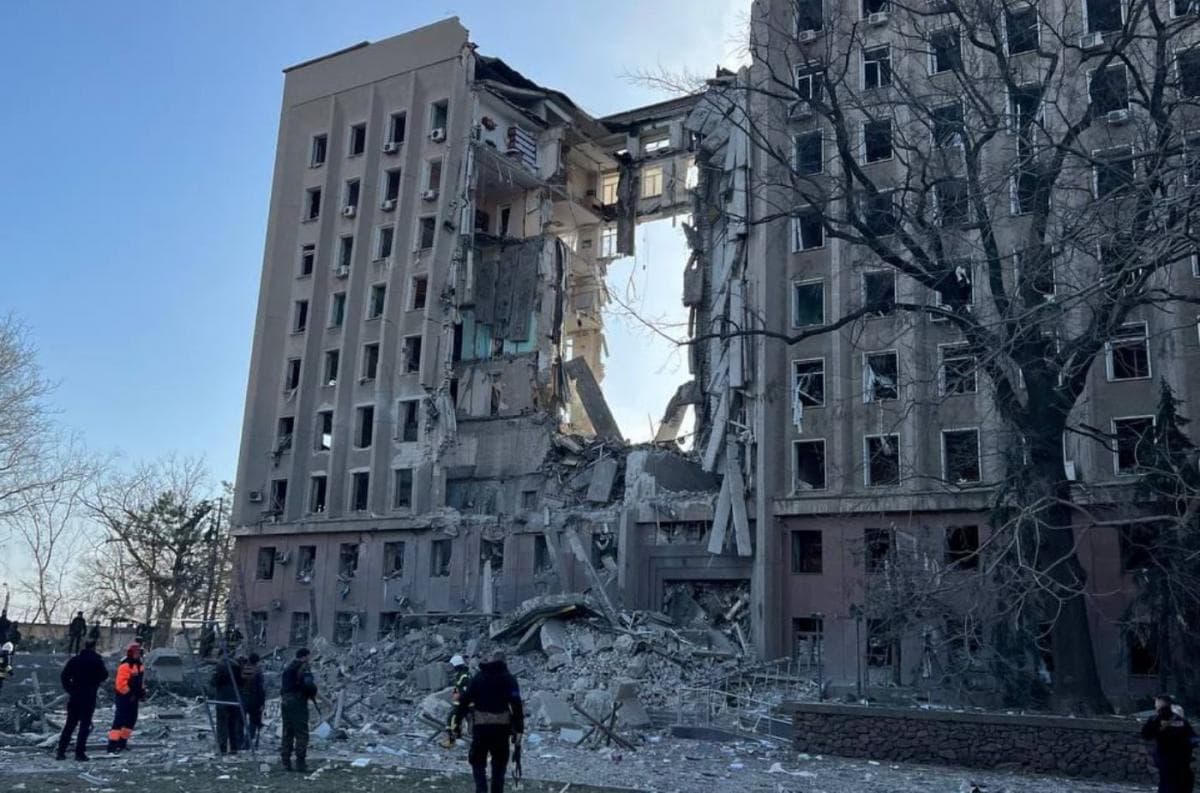
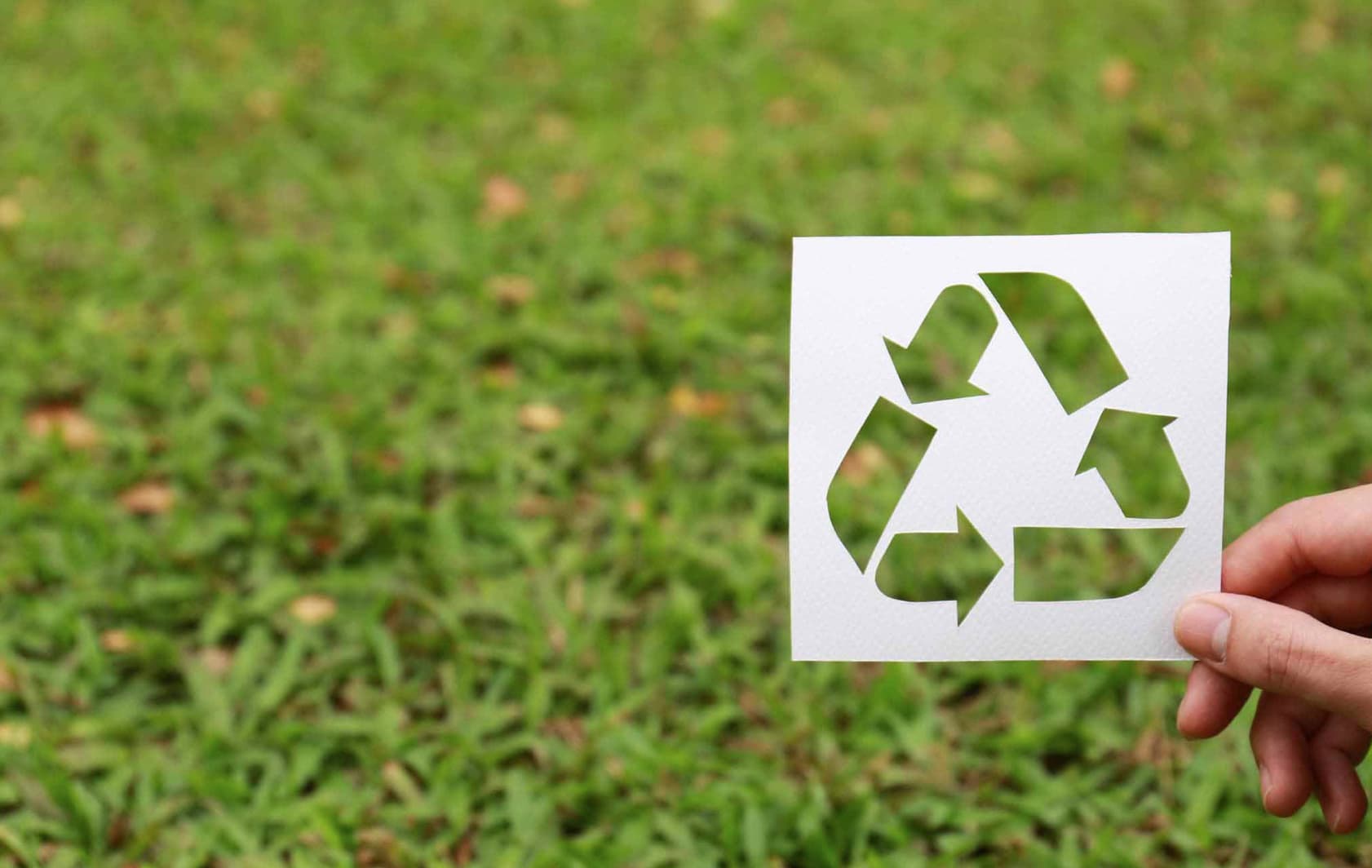
Congratulations to the new partner - the Lithuanian Demolition Association
The Lithuanian Demolition Association was set up to bring together demolition professionals, construction scrap collectors, recyclers and other companies involved with demolition industry in the Baltic country.
Goal is “to grow into a strong and effective association with new members and partners”.
Rokas Urbonas was elected as the first chairman of the association, which is based in the city of Palanga.
The goals and objectives of the Lithuanian Demolition Association are:
To improve the business conditions of the demolition sector, construction waste (scrap) collection, recycling and recycled building materials ready for re-use, to improve the quality of production of recycled and ready-to-use materials from construction waste
To increase competitiveness, demolition, construction waste, business development and job creation in the collection, recycling sector
To promote the export of demolition services
To develop and maintain economic relations with foreign companies and organisations
To participate in the preparation and implementation of Lithuanian demolition and construction waste (scrap) collection, recycling and recycled construction waste (scrap) strategic documents for the development of the materials sector ready for reuse.


One of the biggest challenges is waste caused by infrastructure destroyed.
According to the Minister of Communities and Territories Development, Russian troops destroyed more than 6,800 residential buildings in Ukraine. Even before a full-scale war, construction waste accounted for the main share of waste in landfills due to their large volume, and during reconstruction or construction there were a lot of such waste.
The situation at the landfills is getting worse because no one is in a hurry to solve the problems of unauthorised landfills even before the war, and after the war both the amount of solid waste (solid household waste — Ed.) and waste caused by military operations will increase, which our country will also have to solve. In particular, construction debris that cannot be reused, thermally deformed and containing asbestos, will probably end up in the landfills. Some construction waste can be recycled into raw materials to produce other cheaper materials, but this requires laboratory testing and recycling process itself, which can be significantly expensive."
Moreover, landfills in some regions now have a higher load due to the temporary movement of people from the occupied territories inside the country. In particular, Poltava region hosted about 150 thousand people who were forced to leave their homes, Poltava — about 90 thousand people.


Waste reform set in motion
What does the European approach to waste management imply?
Recently adopted draft Law No. 2207-1-d "On Waste Management" launches the process of legislative changes and mechanisms implementation at the state level required to comply with the Framework Directive 2008/98/EC "On waste". With this "waste" reform started Ukraine obtains an opportunity to support its desire to gain EU membership with concrete actions and systemic changes in the field of environmental protection.
What is the essence of the waste management reform?
The draft Law No. 2207-1-d adopted establishes the legal basis for the European waste management rules implementation in Ukraine. At the same time, framework law is only 10% of the reform. The rest is the development of sectoral legislation on packaging, batteries and accumulators, electrical and electronic equipment, tires, lubricants, and used vehicles waste. The ultimate goal of the reform is to make waste management in Ukraine to be efficient and safe for people and environment.
In general, the European integration waste management reform provides for the introduction of a waste management hierarchy (prevention of accumulation, restoration, processing, disposal and only in the last place — dumping), waste management system planning at the national, regional and local levels, old landfills closure and conditions for the modern waste processing infrastructure building in Ukraine according to European rules. It should also establish the polluter-pays principle and introduce expanded producer responsibility, where the manufacturer of the products will be required to ensure its goods and packaging disposal released to the market with its goods.
In the face of extremely destructive consequences of Russian aggression, this reform is vital for the state for two reasons. First, pollution harms the environment and human health, and second, it damages the reputation of the state seeking to join the EU.
Scale of waste challenges
The situation with waste in our country was critical even before the full-scale armed invasion of the Russian Federation: the total amount of industrial and household waste accumulated in Ukraine was estimated at 15.6 billion tons, enough to cover an area larger than Ivano-Frankivsk Oblast with a layer of one metre. The area of household waste landfills, the height of which is sometimes more than ten-story building, exceeds 9 thousand hectares, which is equivalent to the area of Khmelnytskyi.
Spontaneous landfills that pollute the air, groundwater and land are found in every second village and on the outskirts of the cities; and the mountain rivers of Carpathian Mountains have overflowed with plastic garbage, which in large volumes flow to our neighbours — Romania, Hungary and Moldova, causing reasonable indignation. Being one step away from the status of a candidate for EU membership, we are currently the only major country in Europe where there is no arranged and environmentally safe waste management system.
The impact of Russian aggression on the waste problem is a blow to our soft spot. In the territories liberated from Russian occupation, million tons of wastes were accumulated from the buildings, structures and infrastructure destroyed, vehicles destroyed and damaged; and hundreds of hectares of land were polluted. In the East and South regions, where military operations continue, the scale of destruction and waste generation cannot be yet fully estimated, but they will be even greater. In order to address the challenge adequately, further implementation of waste management reform should be fast and efficient.


Number of civilian infrastructure destroyed as of 22.03
Upon the information received, currently Russian occupation forces have completely or partially destroyed in Ukraine:
- 4,431 residential buildings;
- 548 educational establishments;
- 135 medical establishments;
- 8 cultural and art establishments.
As a minimum, since this information is obtained only from public sources, and also because these figures are increasing every day"
They also added that "civilian infrastructure destroyed by the Armed Forces of the Russian Federation may violate the norms of international humanitarian law and are qualified as the most serious crimes under the Geneva Conventions and the Rome Statute".

Prospects for alternative fuel production in Ukraine
The issue of automotive fuel deficit due to the lion`s share of imports (85%) threatens Ukraine long now. Russia`s war against Ukraine and its consequences, destruction of Kremenchuk Oil Refinery, fuel infrastructure, and sea import route blockade have made this issue extremely acute. Ukraine needs national projects to replace traditional automotive fuels with alternative ones: biodiesel, bioethanol, biomethane, or synthetic liquid fuels.
In fact, Ukraine has its own developments capable of ensuring scientific and technical support for alternative fuels production. It's time to focus on developments fit for implementation, which Specialists from the Gas Institute were involved in.
Let's look at the overall picture of the fossil fuels balance in Ukraine. Total energy coal production makes up about 22 million tons, with 10 million tons of imports. In other words, the share of coal imports as a fuel resource equals to 45%. Only 1.6 million tons of oil are produced in Ukraine. Diesel fuel market constitutes 7.4 million tons, of which imports account for 6.3 million (85%). Gasoline market covers 2.1 million tons, imports — 1 million (50%). Natural gas covers 20 billion cubic metres with 28 billion consumption, and real share of imports makes up about 30%.
Let`s look at the situation with other automotive fuels.
Liquefied petroleum gas (propane-butane, LPG): its market in 2020 was almost 2 million tons, with imports approaching 80%.
Compressed natural gas (methane, CNG): in recent years, automobile gas-filling compressor stations (CNG stations) operated at 10% of their nominal capacity, and their potential for this type of fuel use was about 1 billion cubic metres. The share of imports can be deemed to be roughly proportional to the natural gas (30%).
Liquefied natural gas (methane, LNG) and hydrogen as a fuel are not available in Ukraine.
So, domestic production of traditional automotive fuels (gasoline, diesel, propane-butane) in Ukraine is practically unavailable, with imports accounting for about 80%. Moreover, natural gas becomes a strategic fuel for domestic production, and an increasing load of CNG stations is possible.
Potential for replacing imported fuel is represented by alternative gas fuels, among which the following shall be distinguished:
- generator gas (Co + N2) as a product for carbon-containing waste processing;
- biogas (CH4+ Co2), from which biomethane and carbon dioxide can be isolated;
- hydrogen (N2), namely bio-hydrogen, "green" hydrogen, hydrogen from hydrocarbons.
Generator gas and biogas, in fact, can be produced from the same raw materials — biomass of agricultural and other organic waste.

Ban to plastic bags
The Law "On Restricting the Circulation of Plastic Bags on the Territory of Ukraine" was adopted. It prohibits free circulation of thin and oxo-degradable plastic bags in retail outlets (wall thickness ranging from 15 to 50 micrometres), except for the ultra-thin ones used for meat, fish, etc. packaging. Recently, the Cabinet of Ministers of Ukraine set the minimum allowable prices for thin packages, from UAH 2.00 to UAH 3.00. The general ban to use all packages up to 50 micrometres thick in organised retail outlets will take effect from January 1, 2023. Only biodegradable bags will be allowed for distribution. But will the law fulfil its main function – to reduce the amount of plastic in landfills? Apparently, it is unlikely; after all, there are all risks that this legislative act will only be added to a number of "dead" documents that are not applied in practice.
Lack of mass environmental alternatives and recycling
The relevant law banning plastic bags will continue "operating" on paper until an ecological alternative to these packaging products is provided en masse, and especially if there is no infrastructure for separate collection of solid household waste and a powerful production base for efficient processing of plastic waste. Unfortunately, it shall be stated that these components are practically not provided in Ukraine.
For example, in our country there are only three manufacturers that produce biodegradable bags of corn and potato starch, and raw materials in the form of pellets are imported from the European Union (and it happens in an agricultural country!). It is unlikely that they can provide environmental packages to all retail outlets, even if they operated 24/7. In addition, the authorities have not implemented any motivational "packages" to create and dynamically develop such "new generation" enterprises.
But the main negative factor is the full gap in extensive infrastructure for proper plastic waste management. For example, in the capital, the profile operator, CE "KyivKommunServis" serves 2,500 containers for separate garbage collection, despite the fact that there are about 11 thousand multi-apartment residential buildings in Kyiv. This means that three-quarters of the capital's courtyards are deprived of at least one container for recyclables. Moreover, not a single waste processing plant has been built in Ukraine so far, despite numerous, long-term promises made by authorities at various levels. At the same time, even biodegradable bags – to completely eliminate environmental damage – need proper processing using modern equipment, ideally at special anaerobic composting plants, which also do not operate in our country. Consequently, a ban to plastic bags distribution alone is an absolutely fragmentary measure that will not result in large-scale positive changes in the absence of a systematic state policy in the field of waste management. This is not to mention the fact that the option of significant economic benefits in this segment is completely ignored. After all, the same recycled plastic is a valuable raw material resource, which in developed countries is successfully used in many areas – from the housing and communal services industry and alternative energy to the automotive industry.
